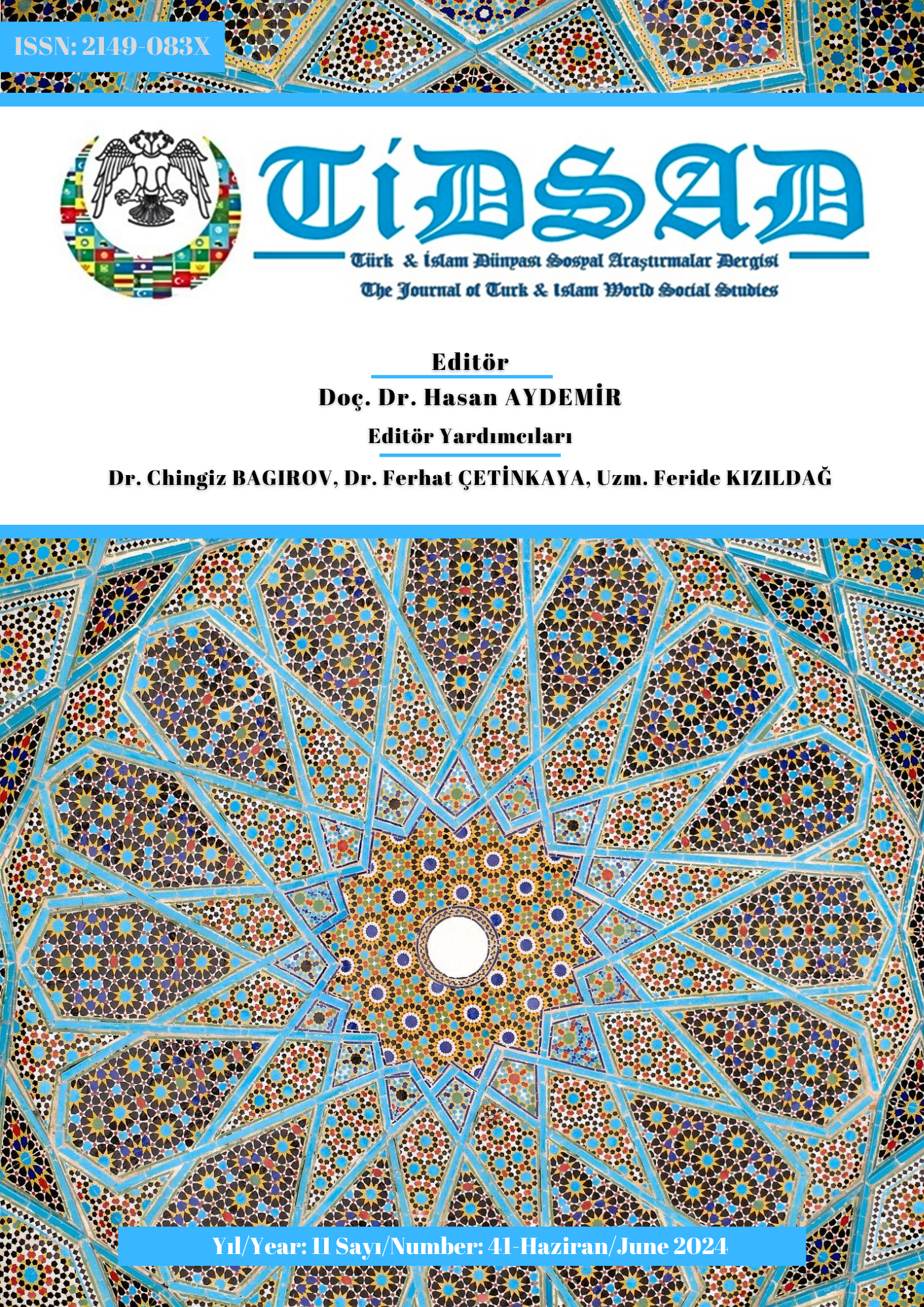Hiç Kavramı ve Sanatın Özü: Süprematizm Aracılığıyla Soyut Sanatta İçerik ve Öz İlişkisi Üzerine İncelemeler
Author :
Abstract
Bu makale, 'hiç' kavramının sanatın özünü anlamlandırmadaki rolünü incelemektedir. Kavramın, soyut sanatta içerik ve öz ilişkisini nasıl şekillendirdiğine odaklanılmaktadır. 'Hiç', çalışmada derin boşluk anlamı taşımakla birlikte sanatın soyut doğasını da ifade etmektedir. Bu açıdan yaklaşılarak sanat eserinde içerik ve öz kavramları tartışmaya açılmaktadır. Antik Yunan’dan modern döneme kadar uzanan geniş bir literatürde, Aristoteles’ten Malevich’e kadar çeşitli düşünürlerin, yazarların ve sanatçıların 'hiç' kavramına dair görüşleri karşılaştırmalı bir şekilde analiz edilmektedir. Araştırma, Aristoteles, Spinoza, Plato, Martin Heidegger, Jean Paul Sartre, Jeremy Webb, Stephen Rowe, Ömer Yıldırım, İsmail Tunalı, Werner Haftmann ve Jean Baudrillard gibi düşünür ve yazarların hiç kavramına dair görüşlerini ele alarak, kavramın özgürlük, evrenin yapısı ve insanın temel doğası ile olan ilişkisini ortaya koymaktadır. İlerleyen bölümlerde ise, soyut sanat ve Kazimir Malevich’in Süprematizm manifestosuna göre sanatta öz kavramının anlamına değinilmektedir. Süprematizm hareketi ve özellikle Kazimir Malevich’in sanat anlayışı üzerinde durularak, 'hiç'in soyut sanatsal ifadelerde nasıl bir öz yarattığı ele alınmaktadır. Araştırma, 'hiç' kavramı üzerinden sanatın içeriksiz tanımlamasını ve Malevich’in Süprematist yaklaşımını kullanarak soyut sanatsal üretimlerin özünü derinlemesine incelemeyi amaçlamaktadır. Literatür taraması yöntemi kullanarak oluşturulan çalışmada yaklaşım, 'hiç'in sanatın özünü anlamada merkezi bir role sahip olduğunu göstermeyi ve bu konudaki mevcut bilgi boşluklarını disiplinler arası bir perspektiften doldurmayı hedeflemektedir.
Keywords
Abstract
This article analyzes the role of the concept of 'nothing' in understanding the essence of art. This research focuses on how the concept of 'nothing' shapes the relationship between content and essence in abstract art. In the study, the concept of 'nothing' carries the meaning of deep emptiness and also expresses the abstract nature of art. In this context, a wide range of literature from Ancient Greece to the modern period, the views of various thinkers, writers and artists from Aristotle to Malevich on the concept of 'nothing' are analyzed in a comparative approach. The research focuses on Aristotle, Spinoza, Plato, Martin Heidegger, Jean Paul Sartre, Jeremy Webb, Stephen Rowe, Ömer Yıldırım, İsmail Tunalı, Werner Haftmann and Jean Baudrillard discuss the concept of 'nothing' and reveal its relationship with freedom, the structure of universe and the nature of human beings. In the following chapters, the meaning of the concept of essence in art according to abstract art and Kazimir Malevich's Suprematism manifesto is discussed. By focusing on the Suprematism movement and especially Kazimir Malevich's understanding of art, it is discussed how 'nothing' creates an essence in abstract artistic expressions. This study aims to explore the concept of 'nothing' and the essence of abstract artistic productions using Malevich's Suprematist approach. The research aims to examine the definition of art without content through the concept of 'nothing' and the essence of abstract artistic productions using Malevich's Suprematist approach. Using the literature review method, the approach of the study aims to show that 'nothing' has a central role in understanding the essence of art and to fill the existing knowledge gaps on this subject from an interdisciplinary perspective.





